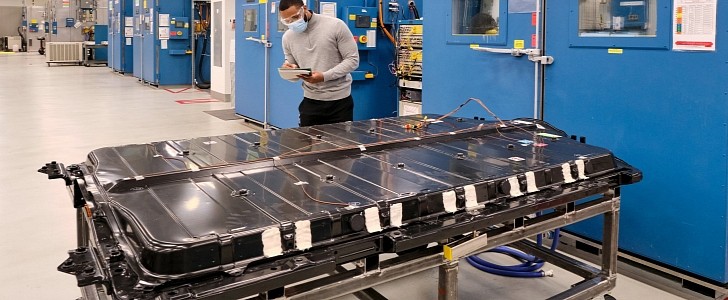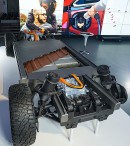General Motors (GM) has struck a deal with California-based mining company Controlled Thermal Resources (CTR) to source local lithium. This will be a key ingredient in its Ultium battery packs, which GM plans to use for the next-generation EVs. Lithium will be obtained via "direct extraction," which will result in a more eco-friendly process than traditional lithium production.
At this point, there’s no denying that automobile industry is moving toward an electric future. Carmakers are already racing to catch up to Tesla, announcing plans to add EVs to their lineups. And as CO2 emissions regulations will continue to play a significant role in promoting electric car sales, we’re bound to see more and more EVs hitting the road in the future.
GM has already announced ambitious goals to eliminate tailpipe emissions from new light-duty vehicles by 2035 and becoming carbon neutral brand by 2040. Now, as part of its all-electric future, the company will source lithium for its future batteries.
Most of GM's future battery-grade lithium hydroxide and carbonate might actually come from CTR's Hell's Kitchen project which is developed in the Salton Sea Known Geothermal Resource Area (KGRA), California. When compared to traditional sourcing such as pit mining or evaporation ponds, the process of extracting lithium from geothermal brine will be carried out in a closed-loop, resulting in a reduced physical footprint, no production tailing, and lower CO2 emissions.
Currently, the majority of lithium used in batteries is mined and processed outside of the U.S. Therefore, this direct lithium extraction technology will not only be more environmentally friendly, but it will also cut the time it takes to make batteries and eliminate the need for overseas processing.
"By securing and localizing the lithium supply chain in the U.S., we're helping ensure our ability to make powerful, affordable, high mileage EVs while also helping to mitigate environmental impact and bring more low-cost lithium to the market as a whole.”, explains Doug Parks, GM executive vice president.
GM has already announced ambitious goals to eliminate tailpipe emissions from new light-duty vehicles by 2035 and becoming carbon neutral brand by 2040. Now, as part of its all-electric future, the company will source lithium for its future batteries.
Most of GM's future battery-grade lithium hydroxide and carbonate might actually come from CTR's Hell's Kitchen project which is developed in the Salton Sea Known Geothermal Resource Area (KGRA), California. When compared to traditional sourcing such as pit mining or evaporation ponds, the process of extracting lithium from geothermal brine will be carried out in a closed-loop, resulting in a reduced physical footprint, no production tailing, and lower CO2 emissions.
Currently, the majority of lithium used in batteries is mined and processed outside of the U.S. Therefore, this direct lithium extraction technology will not only be more environmentally friendly, but it will also cut the time it takes to make batteries and eliminate the need for overseas processing.
"By securing and localizing the lithium supply chain in the U.S., we're helping ensure our ability to make powerful, affordable, high mileage EVs while also helping to mitigate environmental impact and bring more low-cost lithium to the market as a whole.”, explains Doug Parks, GM executive vice president.






